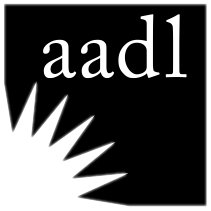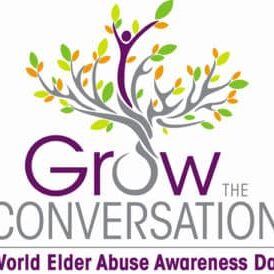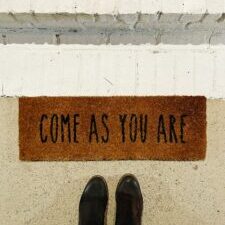Libraries are a vital resource in any community. We’re big fans of libraries and talk with them a lot (keep an eye out for an interview with Ypsi District Library next month!). Today, we’re thrilled to share an insightful interview with Jacob Gorski, a library tech from the Library for the Blind and Print Disabled. In this conversation, we dive into the valuable services this library offers to those with visual impairments and print disabilities, making reading and access to information easier than ever. Whether you’re a senior, a caregiver, or someone working with older adults, you’ll find helpful information on how to connect with the library and take advantage of their resources.
Senior Resource Connect: If you had to give an “elevator speech” about what your organization does, how would you describe it?
Jacob Gorski: I’ll try my best to give an “elevator speech” but it’ll be more like an elevator speech if the elevator was headed to the moon. Apologies in advance.
Ann Arbor District Library provides a diverse array of services and opportunities for community engagement including and certainly not limited to events for all ages, material distribution, room reservations, access to online database and periodicals, and the list goes on.
I am a member of the Adult and Senior Services team, where we focus on a few things—the first being the Washtenaw Library for the Blind and Print Disabled. WLBPD serves anyone residing in Washtenaw County (i.e. outside of AADL’s service area) who is unable to read or use standard printed materials as a result of a temporary or permanent visual or physical limitation, or who is dyslexic. This free service loans books, magazines, and videos in alternative formats such as audio books on cartridge or for download, large print, braille books and magazines, and descriptive video. A talking book machine and materials are mailed at no cost as Free Matter for the Blind. Once signed up, all eligible individuals also have access to downloading tens-of-thousands of books and dozens of magazines from BARD, the Braille and Audio Reading Download service offered by the National Library Service for the Blind and Print Disabled, Library of Congress. Additionally, all eligible individuals also have access to a variety of other services, including access to NFB-NEWSLINE (local and national newspapers via telephone), textbooks and bibles in audio format, and radio reading services.
We also administer Homebound Service for AADL cardholders unable to leave their home for any reason, temporarily or otherwise. Folks who fit into that category would receive and return library materials (excluding art prints, board games/puzzles, and other oversized items) through the mail at no cost. This includes those who may be in a medical institution for an extended period of time. This process is simple and seamless, and we look forward to sharing the details of how it functions when a patron signs up.
Lastly and most recently, we have begun offering one-on-one Computer Help appointments! Reach out to us via phone or email or stop by any of our service desks at any branch and let us know if you need assistance in troubleshooting computer issues, navigating websites/online forms, or setting up accounts. We will find a date and time to meet you at a branch and help the best we can! Each appointment lasts up to 45 minutes. It may make more sense to assist you over the phone, which we are glad to do as well. This service is not a way to obtain basic computer skills or assist in idle internet browsing, but rather to accomplish a specific computer-based goal.
Phew! That’s the longest I’ve ever been in an elevator…
SRC: Walk me through the step-by-step process. What happens when you get a phone call/referral?
JG: If you are someone you know are interested in any of the services described, reach out to us via phone (734-327-4224), e-mail ([email protected]), or speak with staff at any of our branches. From there, we can get you the information you’re looking for/get you signed up for services and share all the nitty gritty details.
SRC: What organizations do you work closely with?
JG: Adult and Senior Services specifically partners with Barrier Busters, Washtenaw Literacy, PALMA-Proyecto Avance: Latino Mentoring Association, Washtenaw Intermediate School District, the Delonis Center, Osher Lifelong Learning Institute, Ann Arbor Public Schools, Pittsfield —just to name a few! Working with community organizations is one of the brightest parts of my job so if you’re an employee at such an institution and have an idea, do not be shy. Please contact us!
SRC: What are some things you wish the public knew about your role?
JG: We are here to serve you. If we can help, we will. And in the rare event that we can’t, we can point you to someone who can. It is what our staff have devoted their careers to, and we love doing it.
SRC: What tips do you have for someone with a loved one that could benefit from your services?
JG: The first thing I would say is that you are not alone. As we continue to understand the COVID-19 pandemic and how it has affected us holistically, isolation and loneliness have emerged as two of the biggest problems we face. AADL and Adult and Senior Services specifically can offer connection in so many different ways. All it takes is a phone call or e-mail.
SRC: Is there anything you would like to add?
JG: Mark your calendars! VISIONS, our annual vendor fair chock full of the latest products and services for the blind, visually impaired, and physically disabled is Wednesday, June 4th at our Downtown Branch from 11-5pm.
Electronic readers, magnifiers, support services for the blind, Braille devices, library services, CCTVs, leader dogs, and transportation services are just a few of the many outstanding services and products that will be on display. Presentations will also be offered on topics related to vision health, services, and assistive technology.
Thank you to Jacob for sharing information about this vital resource. If you’d like to learn more about the Washtenaw Library for the Blind and Print Disabled, visit their website, call the office at (734) 327-4224, or email [email protected].






